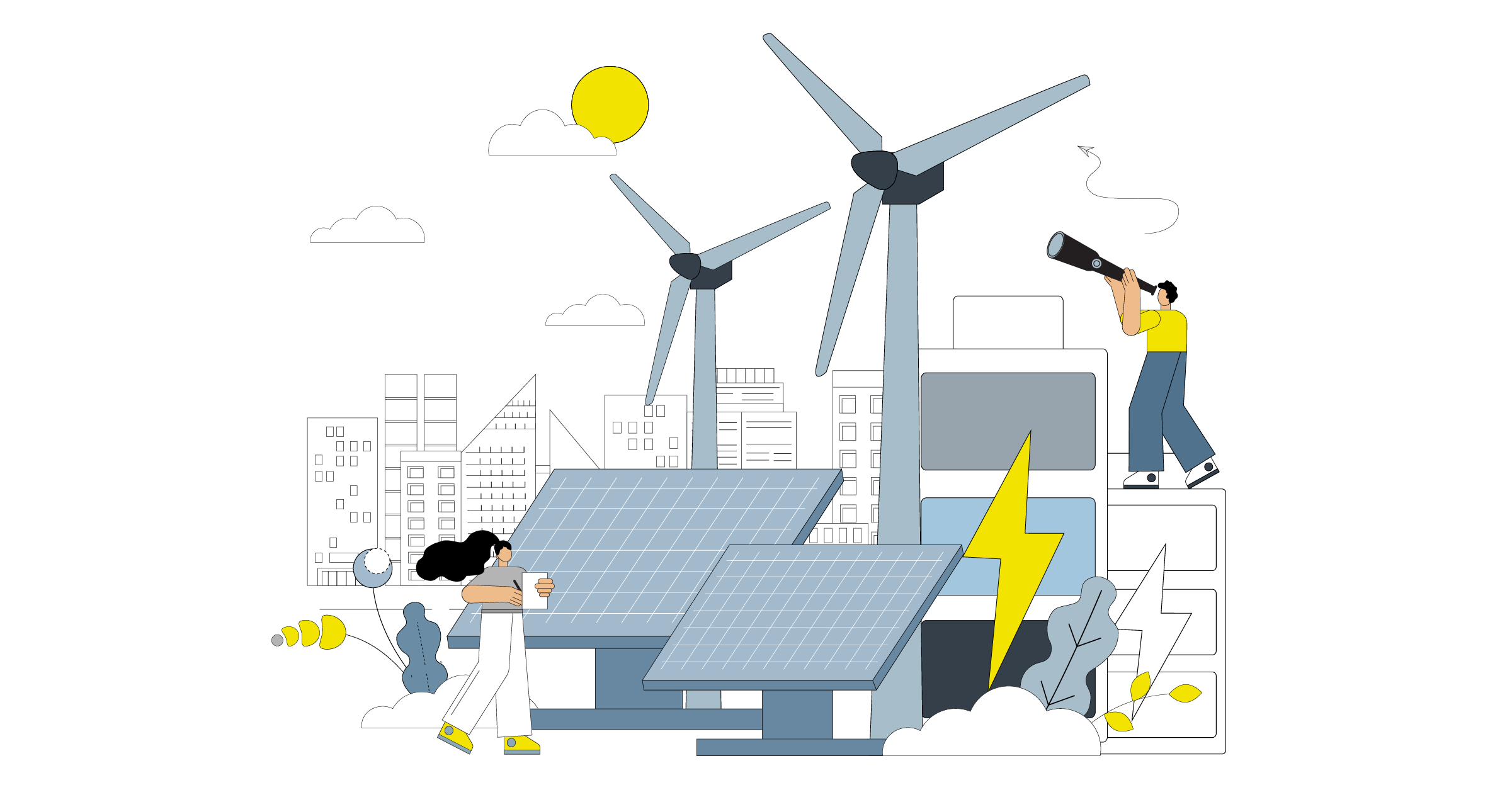Power Up! : Tips for Electrical Engineers in Transition to Renewable Energy
renewable energy

renewable energy
As the world shifts to cleaner energy sources, experienced electrical engineers are in higher demand than ever. These professionals are the backbone of industries like renewable energy generation, energy storage, energy efficiency, smart grid technologies, and others.
With the oil and gas industry dominating energy production for over a century, and having a prime claim on the job market, many electrical engineers have found themselves employed by conventional energy suppliers.
Trends are now indicating a propensity for younger professionals to choose greener career paths as workplace fulfillment is moving past monetary gain. More and more specialists are looking to enter innovative fields of work that yield a more positive effect on the environment. While it is easier now for college students to enter fields of study that align to renewable energy, more seasoned professionals are left wondering if a transition to renewable energy is possible.
There is hope as clean energy and employers are seeking to hire these individuals in higher volumes than ever. Among the roles, electrical engineers are in highest demand. Candidates with years of experience in oil & gas are now being targeted by companies and recruiters to make the transition to renewable energy.
In this article, we will explore some tips for electrical engineers interested, or actively seeking clean energy engineering jobs.
Before making a move, electrical engineers should educate themselves on the subsector they'd like to work for. Nuances can be expected in each, so determining how these align with career goals, credentials, and location preferences is a crucial first step.
Some nuances electrical engineers might expect in renewables might include:
Complex logistics and the harsh environments of the offshore wind sector. Some of the most lucrative roles involve stepping into more challenging settings.
Intermittency management in solar energy photovoltaic systems. Solar power is variable. The unpredictability is something some professionals do not want to depend on.
Hydropower on a smaller scale can mean dealing with local compliance and regulations that might be tasked elsewhere at larger organization
Energy storage roles entail learning about battery management systems (BMS) that involve working with complex algorithms and hardware. This could turn off specialists that are wanting a quicker transition.
Networking with experts in the renewables space is an excellent way to learn about the pros and cons of each subsector. Going to industry events, conferences, and online communities helps you meet professionals and stay updated on renewable energy trends.
Don’t miss an opportunity to network by staying up-to-date on the latest Brunel events on our LinkedIn.

Renewable energy technologies are constantly evolving, so it's important to stay up-to-date with the latest advancements.
Before applying for roles, professionals should begin to tap into knowledge bases for solar panel, wind turbine, and energy storage systems. From development to operation of these systems and any software involved, becoming familiar with the intricacies is a great way to being a transition to renewables.
Many colleges and universities also offer certifications and workshops focused on renewable energy technologies. Taylor Hopkinson, our renewable energy partner, has made the transition to offshore wind easier for professionals by providing a free and fully-online Offshore Wind Essentials Training.
Experienced engineers in any sector can benefit from a refresher on fundamentals, but this is especially important for those looking to enter a role in a new industry.
Organizations are likely to follow through with candidates who can demonstrate a strong grasp on the basics and add value with additional experience. These fundamentals are the basis for any new skills acquired after a change in industry.

Safety is a top priority for electrical engineering jobs, regardless of industry. Knowing safety rules is valued and keeping safety trainings and certificates up-to-date will help candidates stand out. Compliance with safety standards also guarantees adherence to legal requirements, and it protects expensive equipment used in renewable energy systems from damage caused by electrical faults or improper handling.
Safety adherence also helps mitigate environmental hazards, such as pollution or fires, aligning with the sector's sustainability goals. By prioritizing safety, engineers establish a strong professional reputation within the industry, highlighting their commitment to ethical engineering practices.
Groups like SEIA provide training and certification for renewable energy systems, including safety, installation, and maintenance. At Brunel, we offer contractors structured training programs to ensure compliance across all industries we serve. Learn more.
Apart from safety regulations, renewable energy engineering jobs require compliance with a variety of environmental regulations. These are designed to minimize any negative impact of projects on the environment.
Electrical engineers with experience in the oil and gas industry may have background knowledge of regulations related to air and water quality, but there are an abundance of others that could be encountered in renewables. Understanding these environmental compliances can be beneficial for job-seekers and any certifications are great to include on a resume.

Transitioning from oil and gas to the renewable energy sector can be a rewarding experience for electrical engineers. Job seekers can ease their transition by learning about various renewable energy types, technologies, electrical engineering basics, safety regulations, and environmental rules.
In addition to these tips, networking with experts in the field and attending industry events and conferences can also help to keep abreast of the latest trends and opportunities in the sector. As the world shifts to cleaner energy, electrical engineers can help create a sustainable future for generations to come.
If you're interested in a contract or permanent role, Brunel is a global recruitment partner to some of the most respected names across various industries. Explore our open roles now!